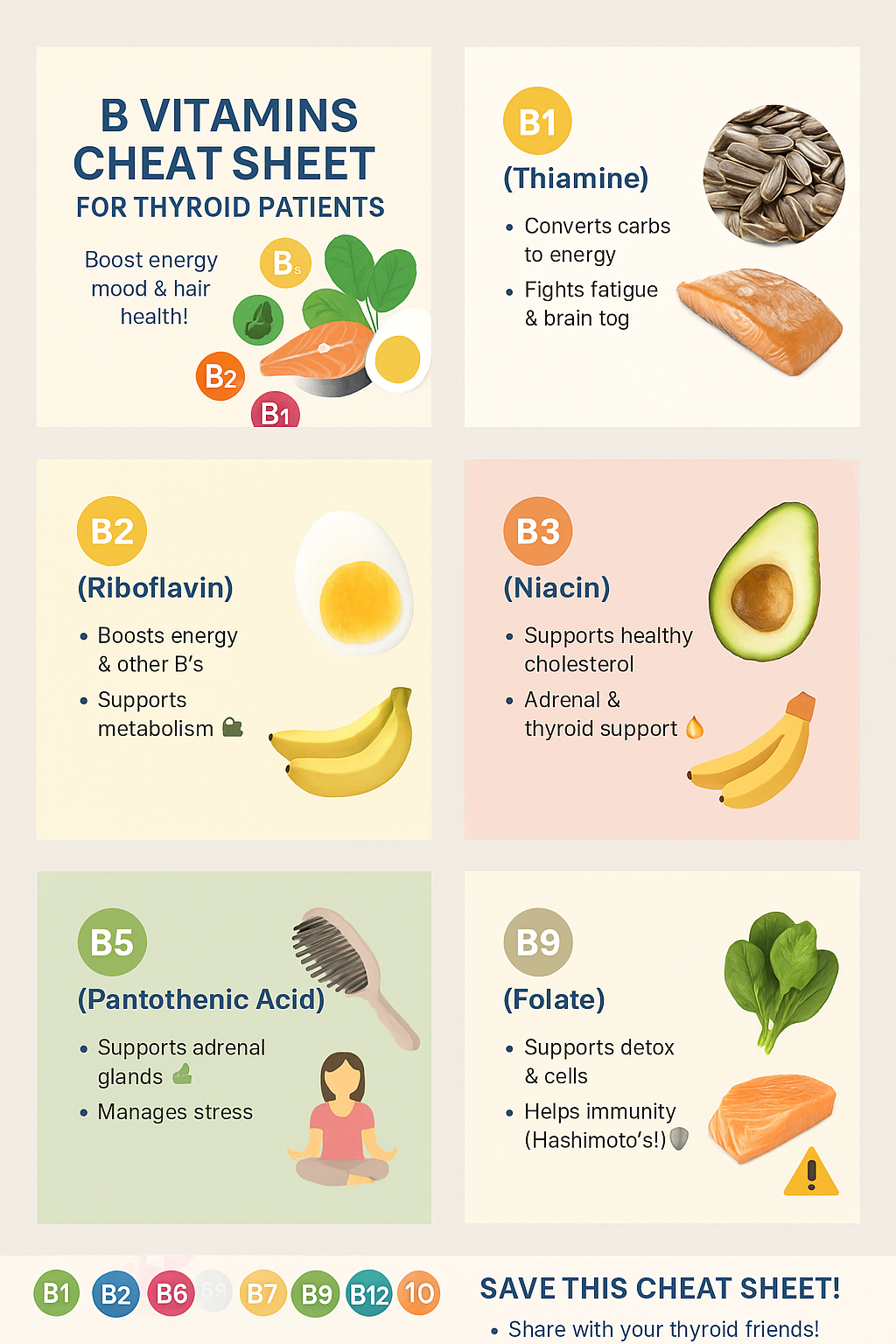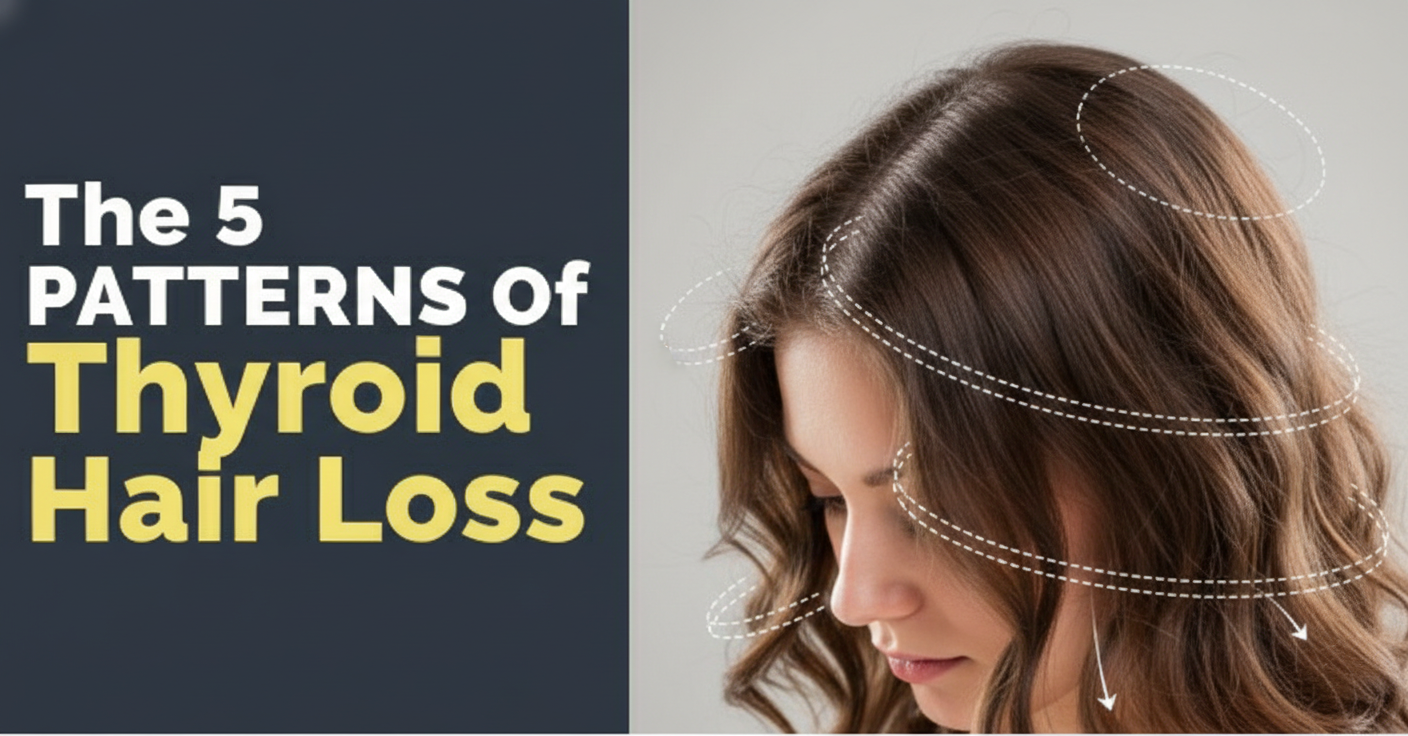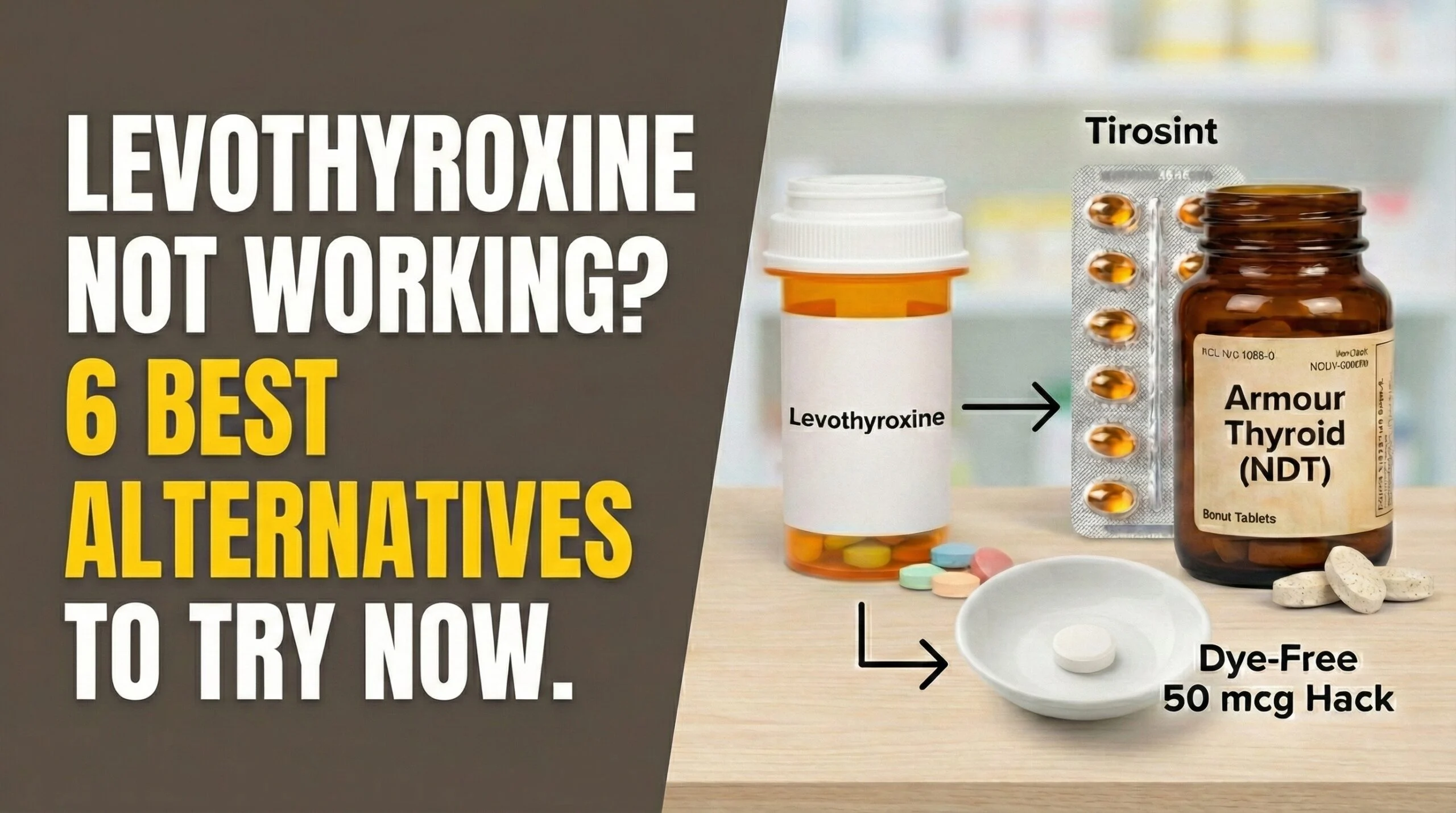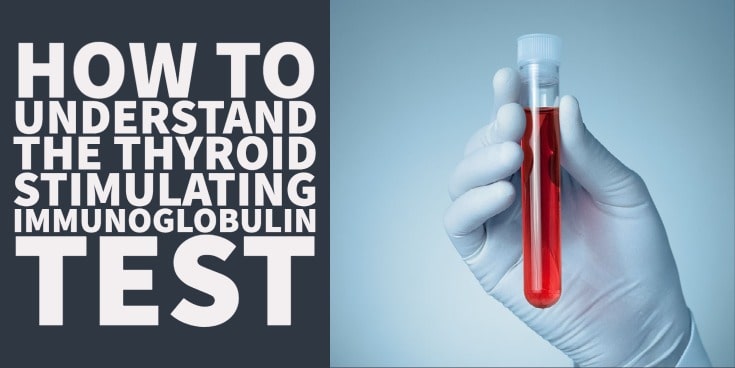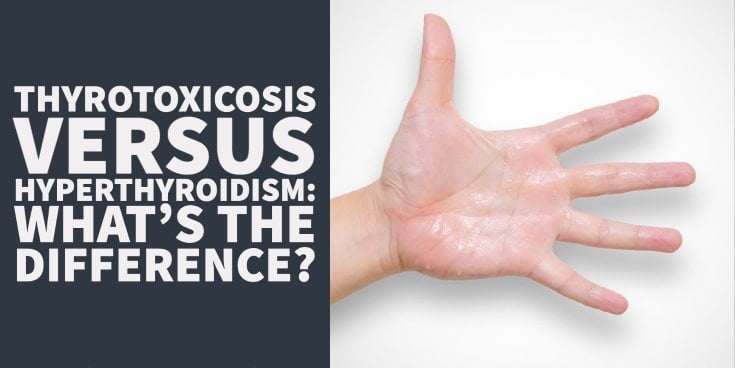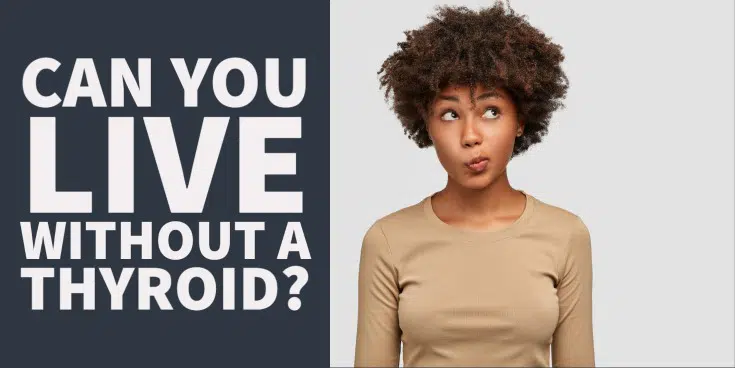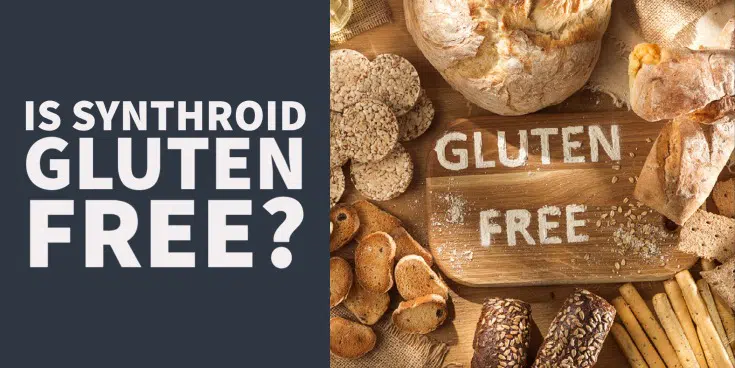B vitamins can make a HUGE difference for thyroid patients.
From boosting energy and mood to supporting hair growth, these vitamins help your entire body thrive.
And guess what happens when you don’t have enough of one (or more) of them? You’ll feel it.
Here’s what each B Vitamin does and what getting more of each can do for you:
#1. B1 (Thiamin)
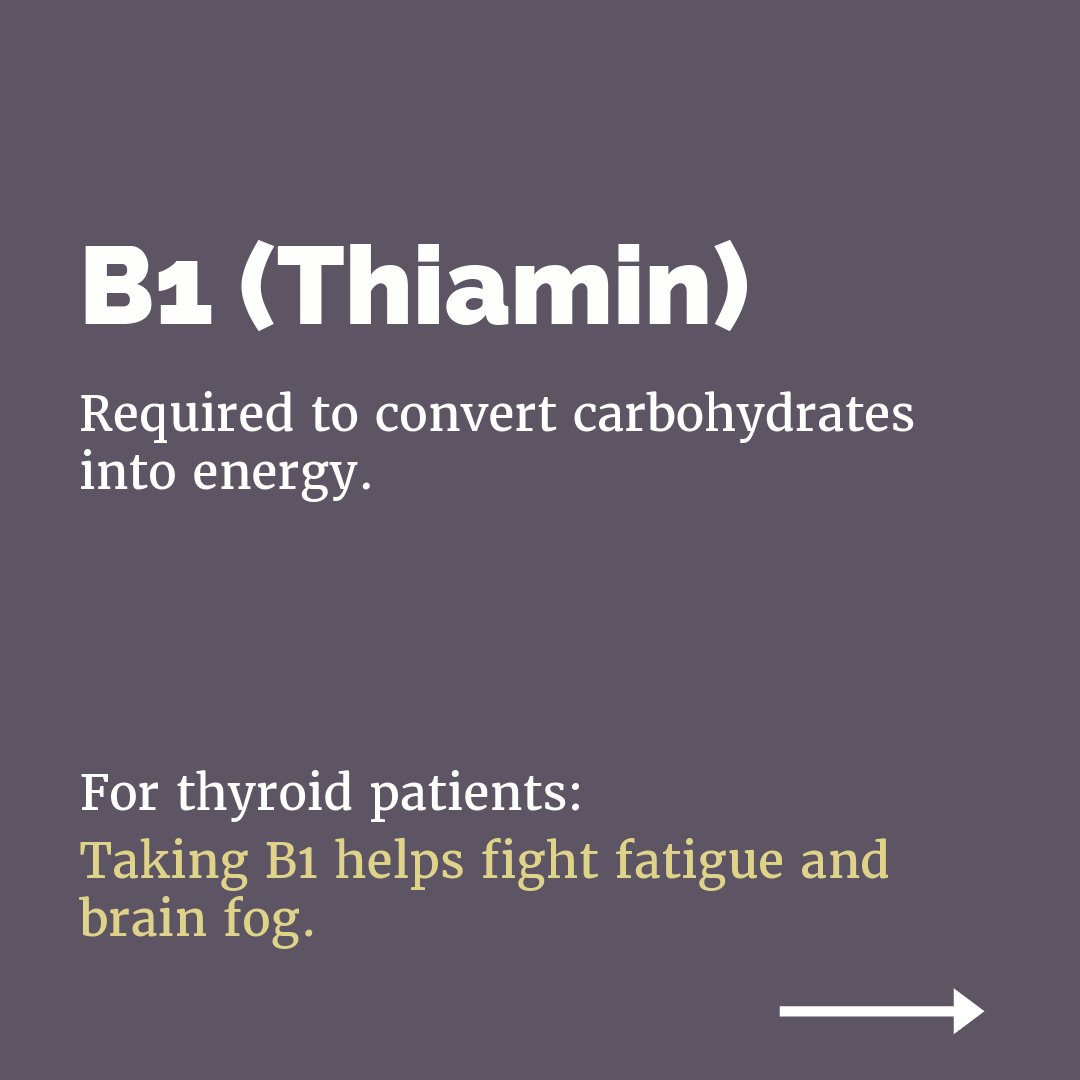
Thiamin is required by the body to convert carbohydrates into energy.
This means you need it to turn the food that you eat into usable energy for your cells.
Not enough thiamin means that your thyroid will be unable to activate the cellular machinery it needs to turn on your metabolism, grow your hair, and do pretty much everything else.
What it does for thyroid patients:
Unsurprisingly, supplementing with thiamin helps increase energy and fights brain fog because your brain is a major energy hog.
Despite accounting for only 2% of your body’s mass, it consumes 20% of your total energy!
Source: https://pubmed.ncbi.nlm.nih.gov/24351023/
How to take it (form & dosing):
As a thyroid patient, take up to 50 mg of thiamin as thiamin HCL.
#2. B2 (Riboflavin)
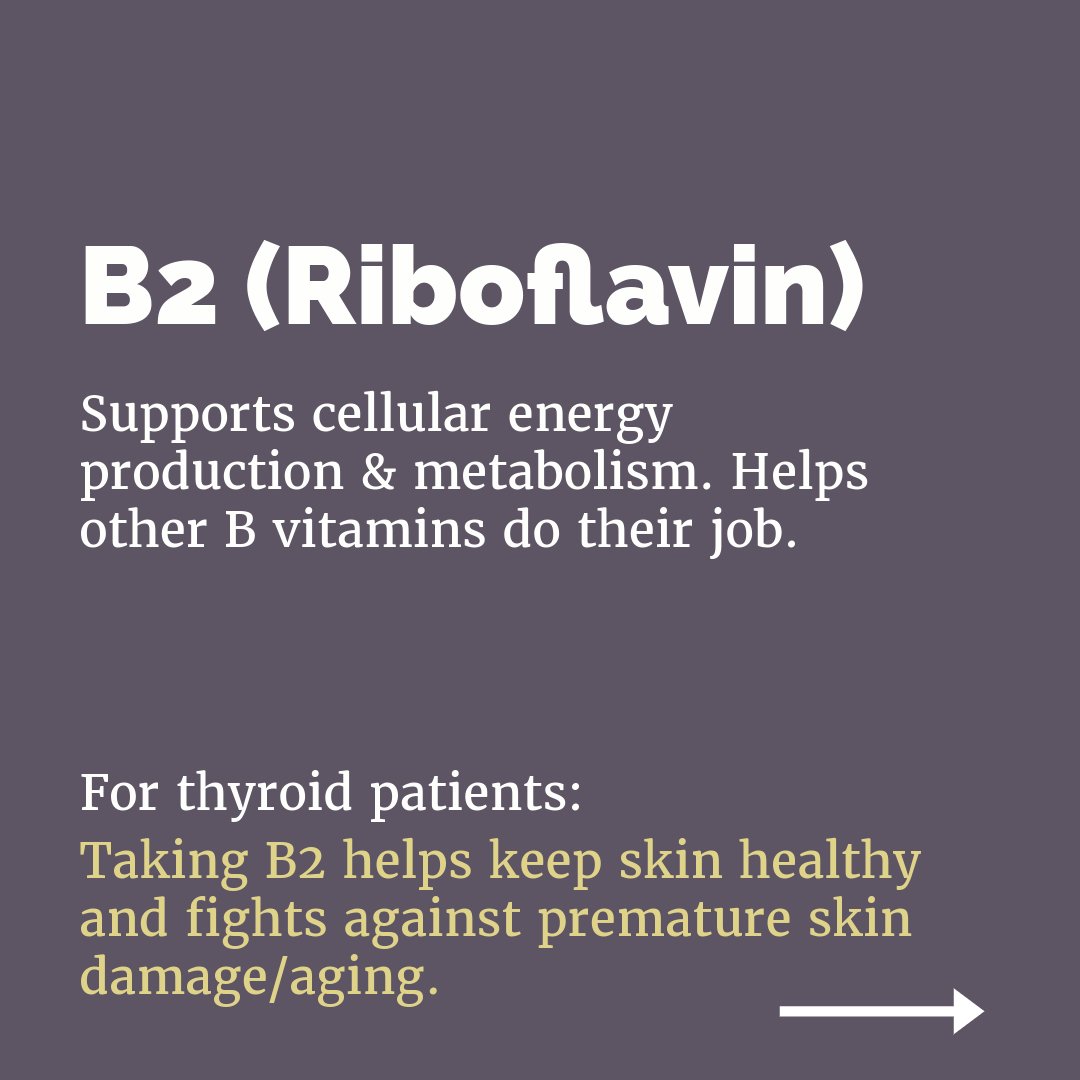
Riboflavin acts as a cofactor for the enzymes involved in creating energy and thyroid hormones.
If you don’t have enough B2, then your ability to create thyroid hormone will be compromised.
On top of this, it helps other B vitamins do their job, which further impacts your thyroid as well as other tissues such as the skin.
What it does for thyroid patients:
Taking additional B2 helps keep thyroid function healthy more generally, and it also plays a role in protecting your skin from oxidative damage.
This is important because thyroid patients often suffer from premature skin damage and aging due to collagen loss.
Source: https://pubmed.ncbi.nlm.nih.gov/3809170/
How to take it (form & dosing):
Take up to 8 mg of riboflavin as riboflavin 5′-phosphate sodium.
#3. B3 (Niacin)
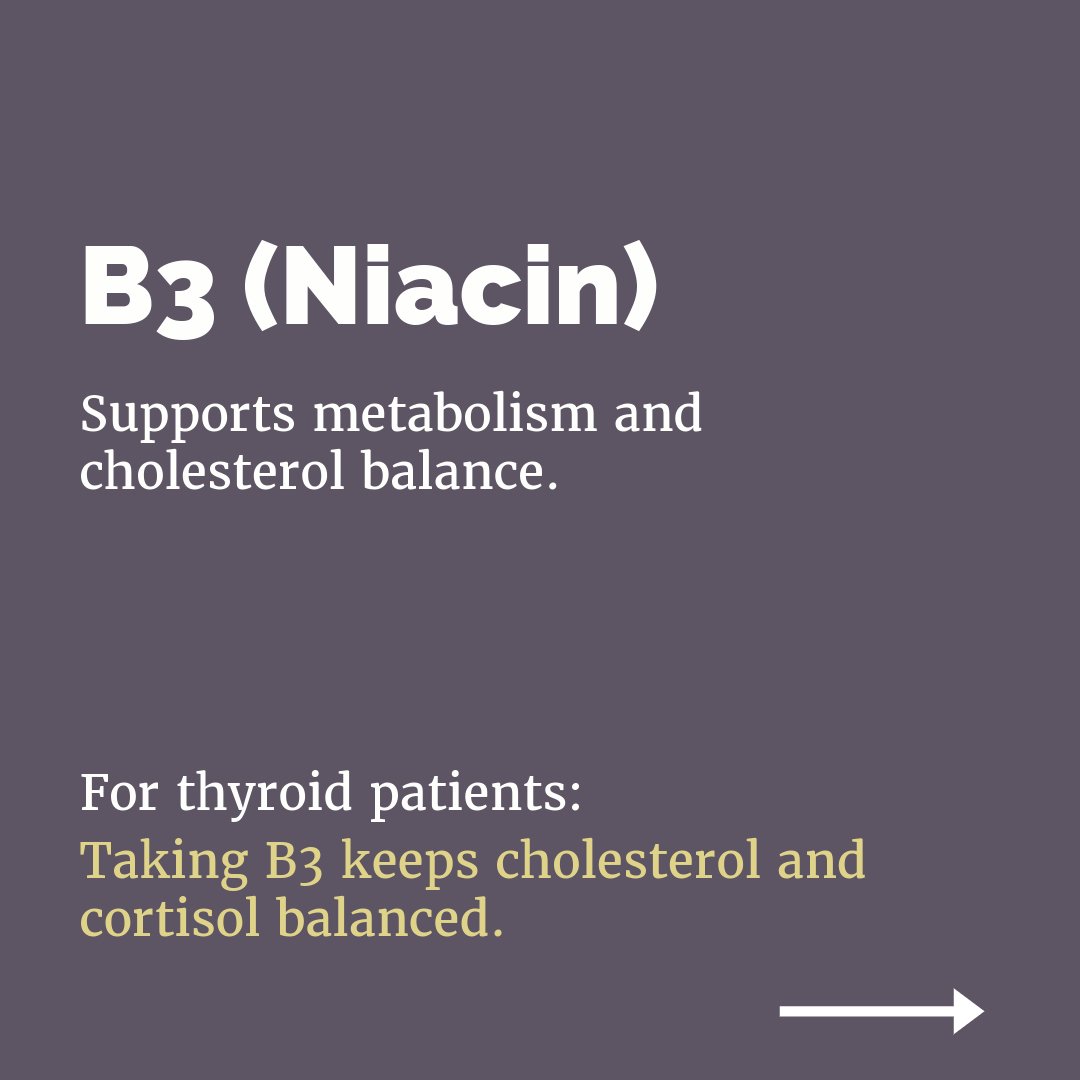
Niacin has several functions, but its most important ones are the regulation of cholesterol and the regulation of metabolism.
What it does for thyroid patients:
Taking niacin will help keep your cholesterol and cortisol levels balanced, which are both negatively impacted by thyroid dysfunction.
In low thyroid states, cholesterol will rise and cortisol will lower.
But it’s important to keep both balanced for long-term health.
How to take it (form & dosing):
Niacin, as nicotinic acid, may lower thyroid lab tests, so be sure to use a more active form, such as niacinamide.
Dosing for thyroid patients should be between 100-250 mg.
Source: https://pubmed.ncbi.nlm.nih.gov/7776715/
#4. B5 (Pantothenic acid)
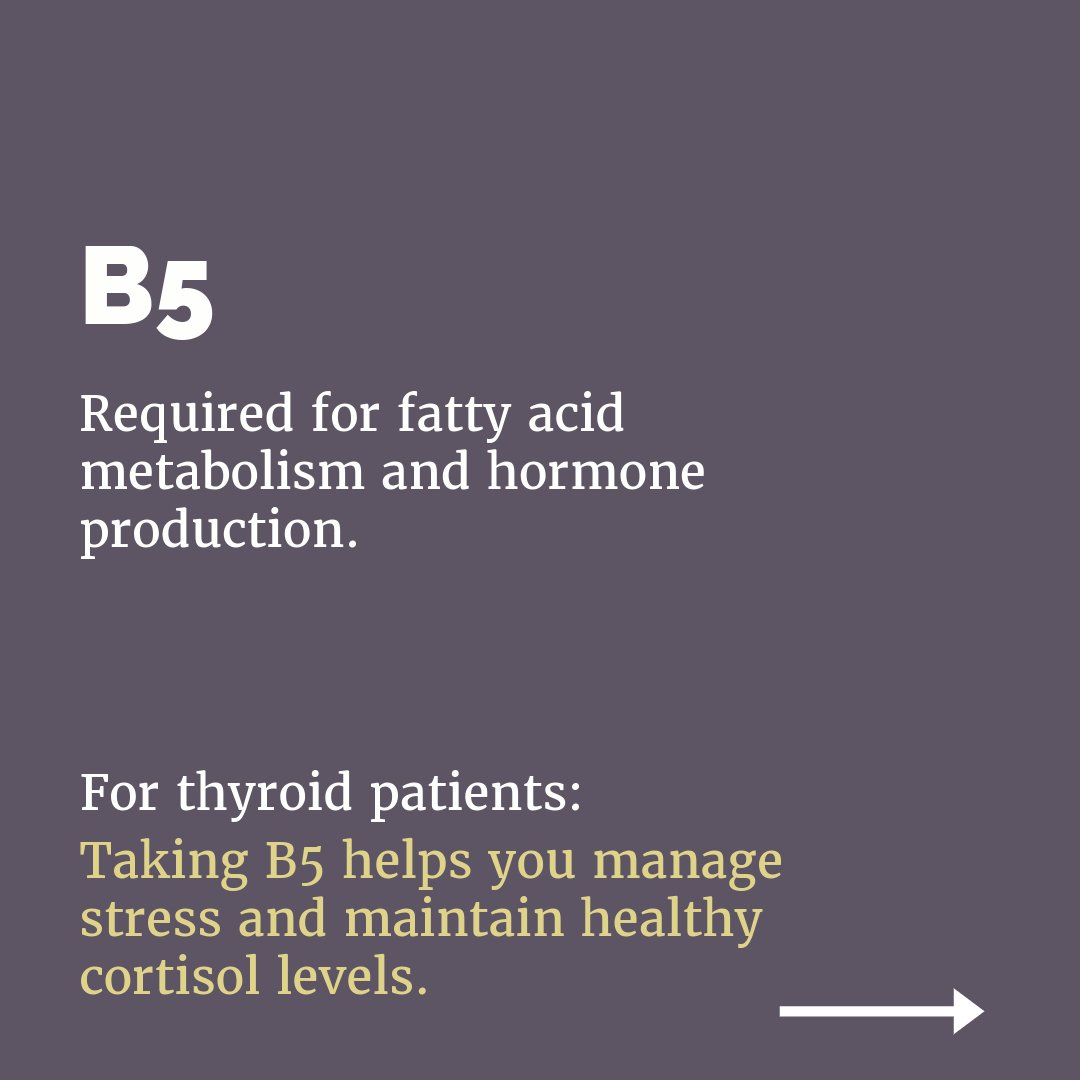
B5 is used by the body to break down carbohydrates, proteins, and fats.
It’s also involved in the creation of several types of hormones as well as cholesterol.
What it does for thyroid patients:
B5 is a stress buster for thyroid patients.
It helps you manage stressful situations and keeps your cortisol in line.
Because stress is constantly depleting B5, and because thyroid patients are more susceptible to the impact of stress, supplementing is a great idea.
Source: https://www.ncbi.nlm.nih.gov/books/NBK563233/
How to take it (form & dosing):
If you want to supplement, take calcium pantothenate at a dose of around 5 mg.
#5. B6 (Pyridoxine)
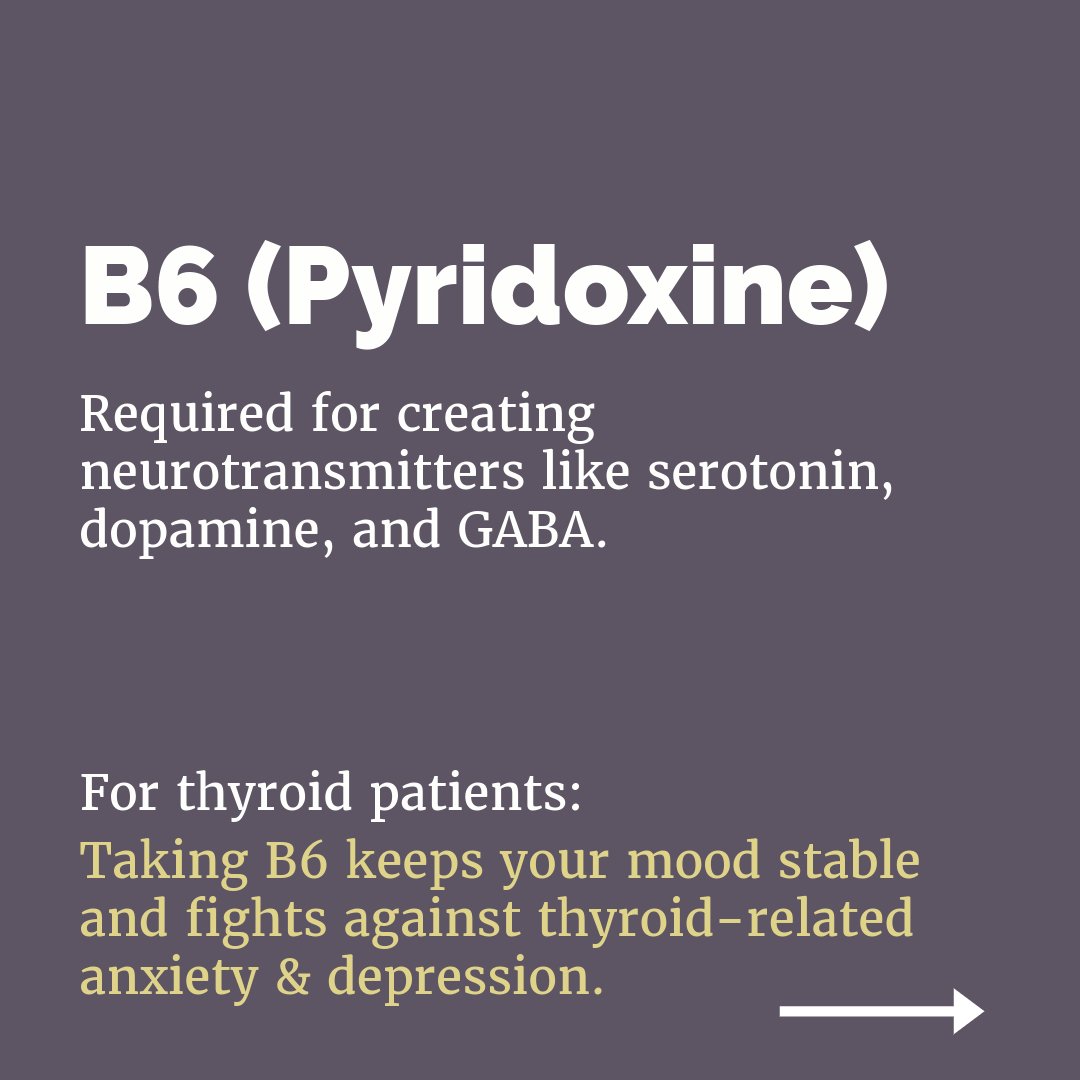
B6 is used by the body to create neurotransmitters like serotonin, dopamine, and GABA.
What it does for thyroid patients:
You can think of B6 as the feel-good B vitamin because it will help keep your mood stable and fight against thyroid-related symptoms like anxiety and depression.
If you have any issues with your mood, this is the B vitamin to take.
Source: https://pmc.ncbi.nlm.nih.gov/articles/PMC9577631/
How to take it (form & dosing):
Use an active form of B6 like pyridoxal 5′-phosphate at a dose of up to 5 mg per day.
#6. B7 (Biotin)
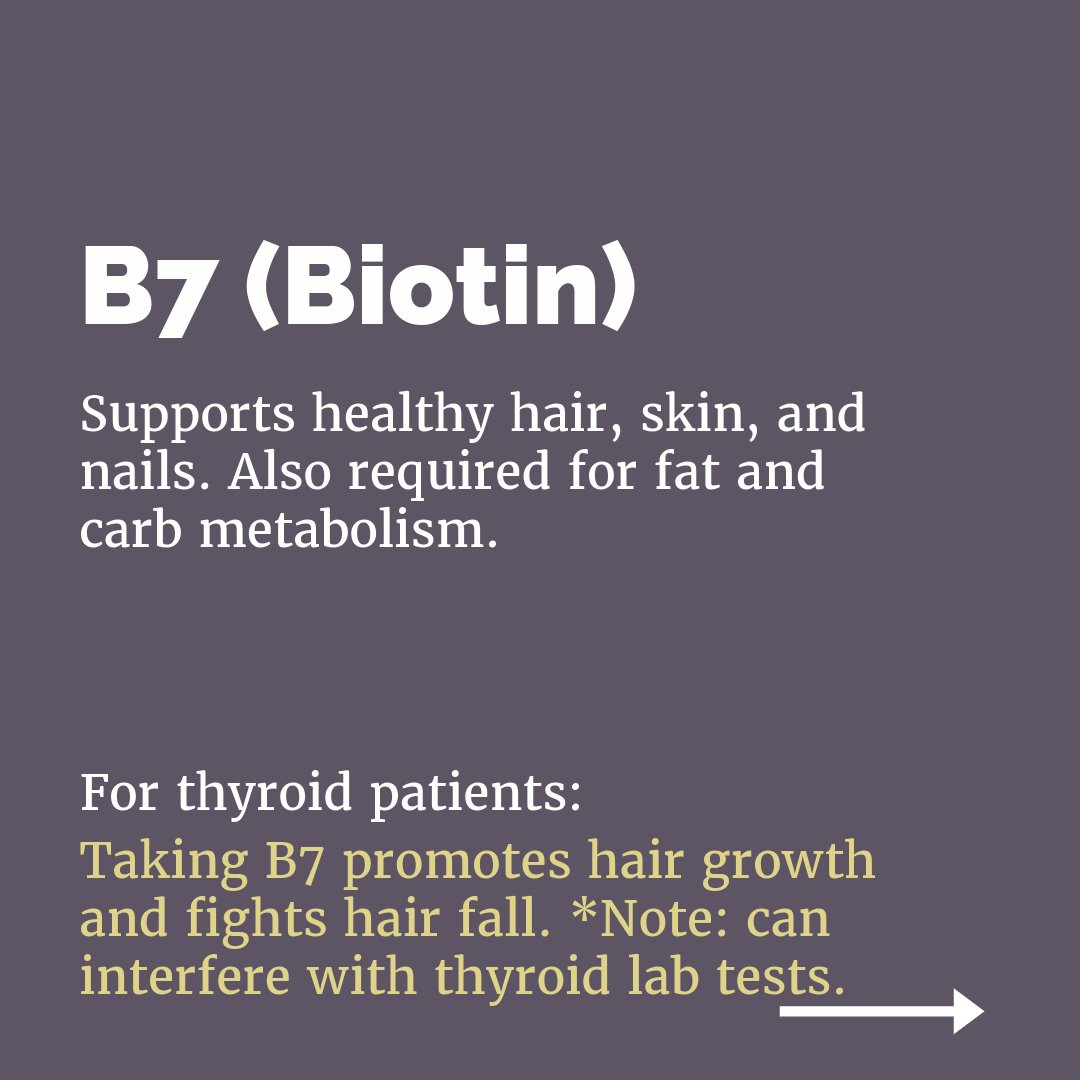
Biotin is required by the body to support healthy hair, skin, and nails.
It’s also needed for fat and carbohydrate breakdown.
What it does for thyroid patients:
You can think of B7 as the beauty B vitamin because it will help fight against thyroid-related skin problems, hair loss, and nail damage.
Use biotin if you’ve noticed changes to your hair, skin, or nails since your diagnosis.
How to take it (form & dosing):
You can take biotin in supplement form as biotin. And don’t be afraid of high doses.
You can safely use up to 5,000 to 10,000 mcg per day.
Just remember that biotin can interfere with thyroid lab testing accuracy. It doesn’t actually change your thyroid, it just interferes with the lab test itself.
To avoid this issue, just stop taking any supplement that contains biotin 2-3 days before you get your labs drawn.
There’s no need to avoid it 100% and miss out on its amazing benefits.
Source: https://pmc.ncbi.nlm.nih.gov/articles/PMC6103391/
#7. B9 (Folate)
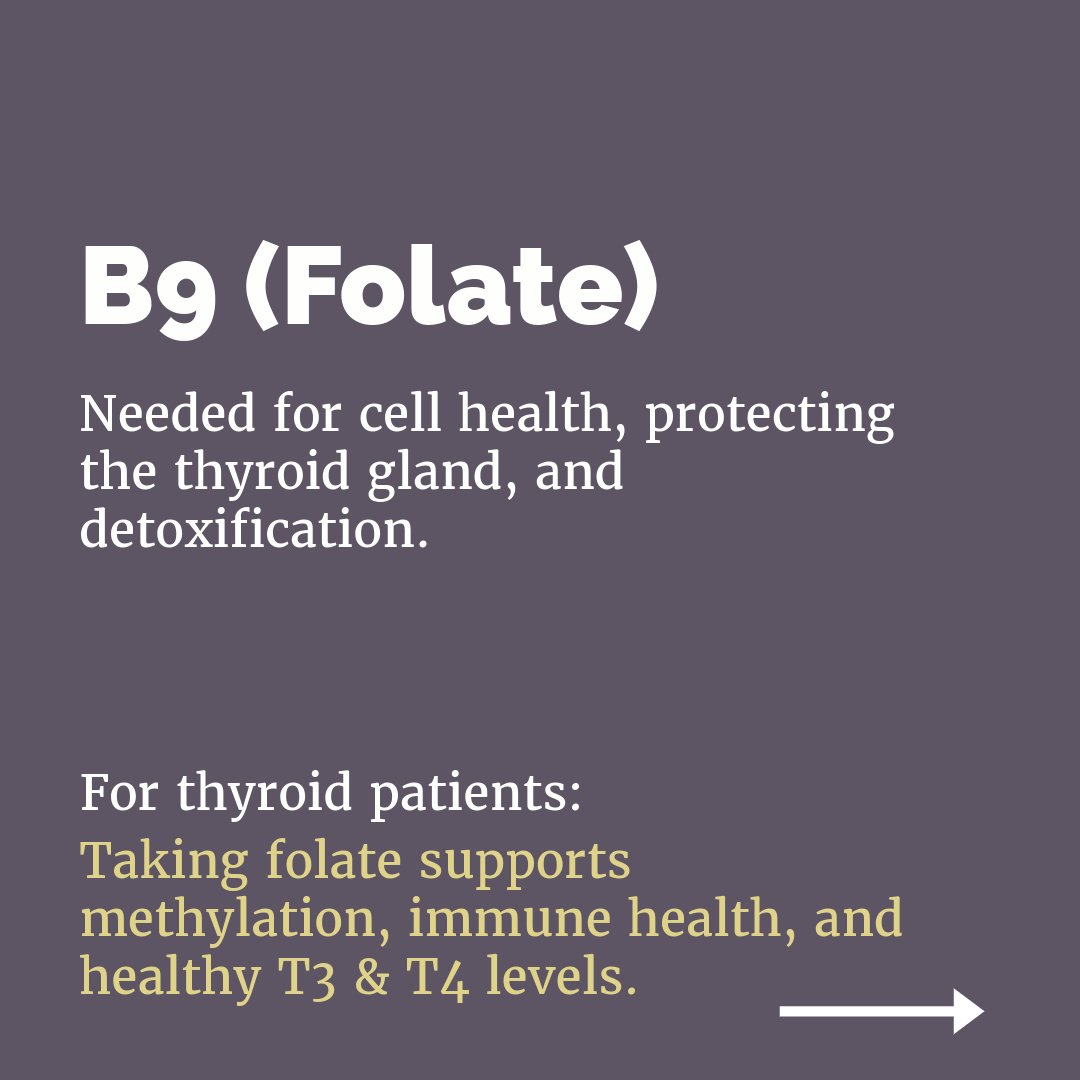
Folate is needed by the body to keep your cells healthy, to protect your thyroid gland from oxidative stress, and to assist in detoxification.
What it does for thyroid patients:
The easy way to think about folate is as something that keeps all of your cells healthy.
It does this through its impact on methylation, DNA synthesis, and thyroid hormone production.
It’s hard to pinpoint a folate deficiency because not having enough just makes everything worse, including your low thyroid symptoms.
So from that perspective, it’s great to take if you just aren’t feeling yourself.
How to take it (form & dosing):
Make sure to avoid folate as folic acid. Instead, use a pre-methylated form such as L-5 methyltetrahydrofolate bound to calcium salt.
This activated form is easier to use by the body and will provide you with much better symptom control compared to folic acid.
Source: https://pmc.ncbi.nlm.nih.gov/articles/PMC9380836/
#8. B12 (Cobalamin)
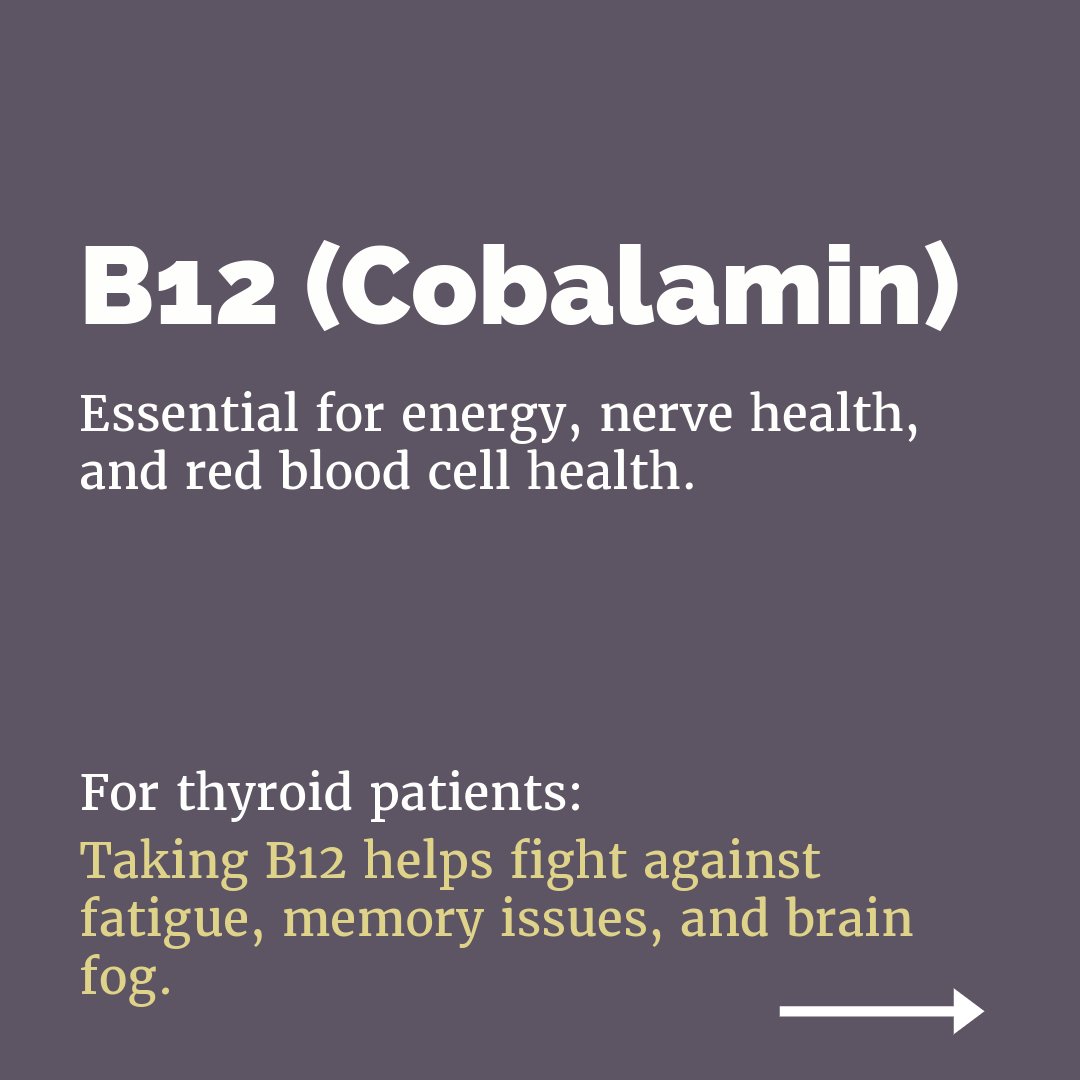
B12 is essential for the creation of cellular energy, for keeping your nerves healthy, and for helping red blood cells deliver oxygen to your cells.
What it does for thyroid patients:
B12 is one of the most important B vitamins for thyroid patients because deficiency is very high among this group (some research suggests that up to 50% of thyroid patients are deficient).
Taking B12 is especially helpful if you have fatigue, brain fog, or memory issues.
Source: https://pmc.ncbi.nlm.nih.gov/articles/PMC9994182/
How to take it (form & dosing):
Avoid cyanocobalamin and, instead, use a more activated form like methylcobalamin, hydroxycobalamin, or adenosylcobalamin.
My recommendation is to take 1,000 mcg of each of these forms to help bypass intestinal absorption and metabolism issues (which are very common).
Your Next Step
In a perfect world, you should be getting your B vitamins from a well-rounded diet that includes both plant and animal products.
But because most people aren’t eating this type of diet, sub-optimal levels is the norm, not the exception.
To fight this, either increase your intake of whole foods or take a well-formulated B complex with pre-activated B vitamins.
It doesn’t matter which you choose, just pick one.
I personally take a B complex every day because I can notice a big difference in my energy when I do.
If you like the idea of using an all-in-one B complex, you can see my recommendation here.
And if you want to continue learning about B vitamins and your thyroid, check out this article next.
